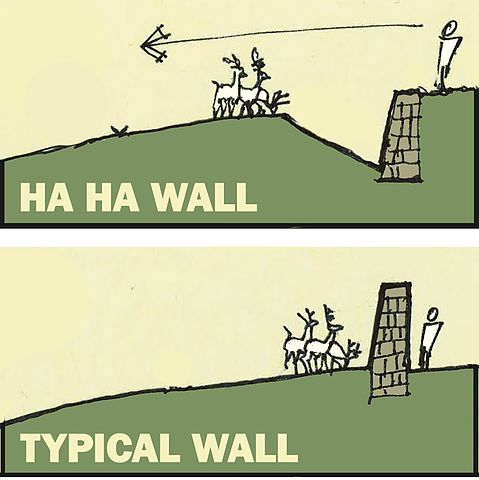
In E.M. Forster’s 1907 novel The Longest Journey, the description of the country estate Cadover contains a surprising term:
The lawn ended in a Ha-ha (‘Ha! ha! who shall regard it?’), and thence the bare land sloped down into the village.
A ha-ha is indeed the term for a sort of buried wall adjoined by a sloping ditch — it will keep deer out of your garden without blocking the view. But how it came by that name seems uncertain. Possibly it’s a shortened form of “half and half” (half wall, half ditch), and possibly it’s named for the cries of its observers — the earliest usage in the Oxford English Dictionary is John James’ 1712 translation of Antoine-Joseph Dézallier d’Argenville’s Theory and Practice of Gardening — he refers to “a large and deep Ditch at the Foot.., which surprizes..and makes one cry, Ah! Ah! from whence it takes its Name.”
In Terry Pratchett’s novel Men at Arms, a ha-ha is accidentally specified to be 50 feet deep. The result is called a hoho, and it claims the lives of three gardeners. In Snuff, two characters go for a walk in the countryside and “navigate their way around the ha-ha, keep their distance from the ho-ho and completely ignore the he-he.”
